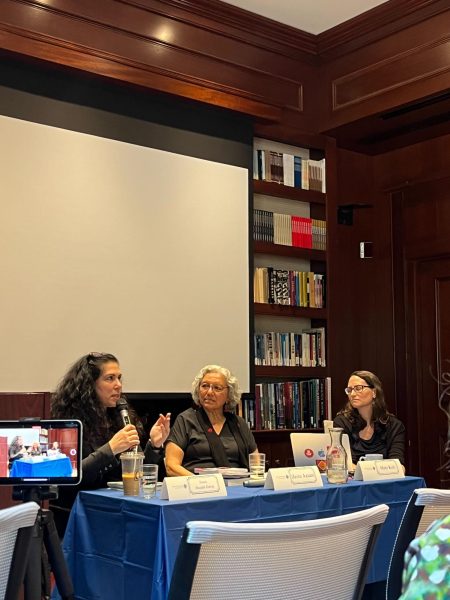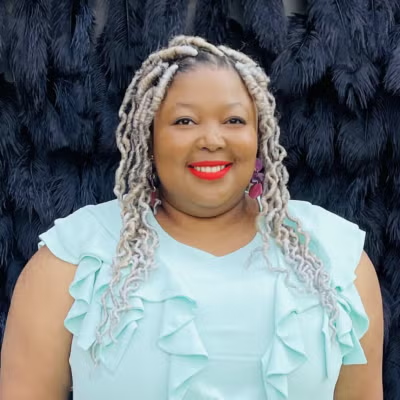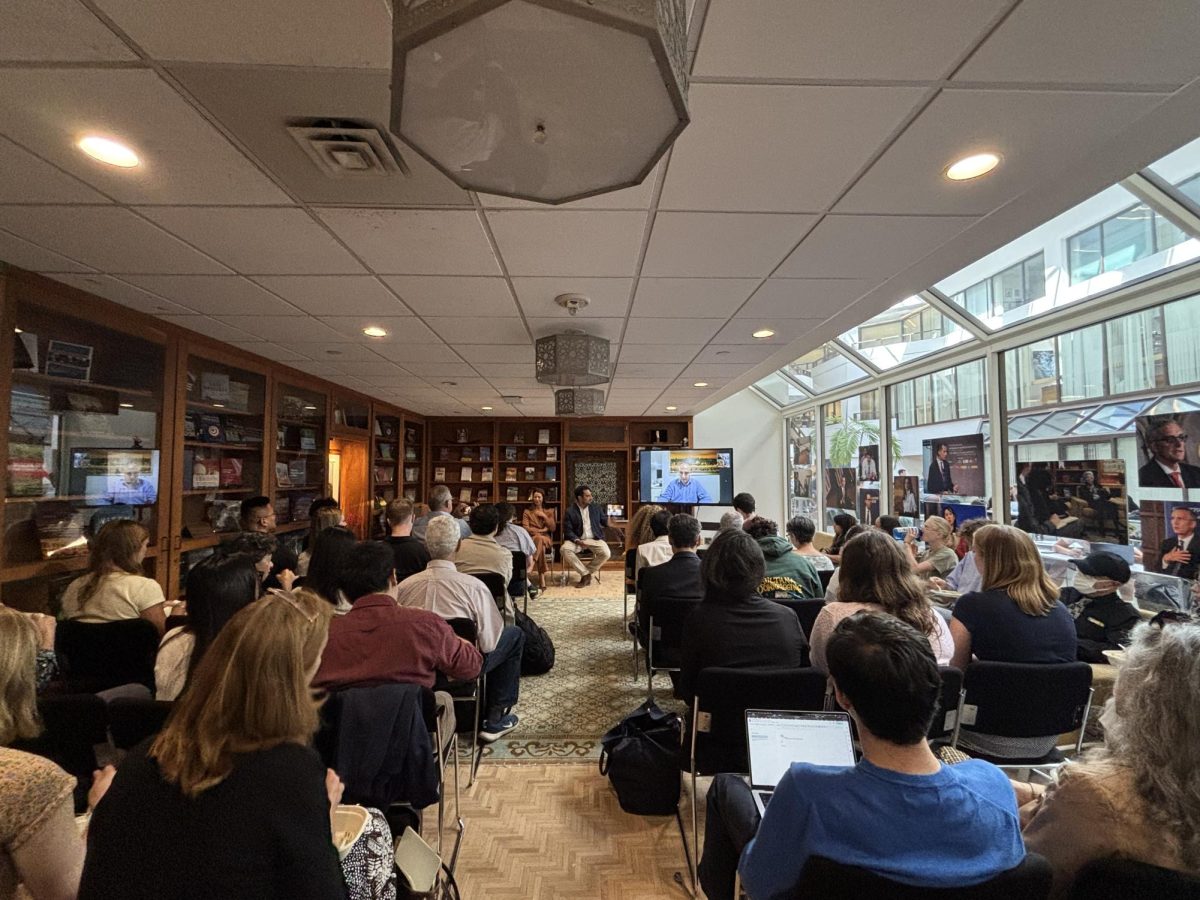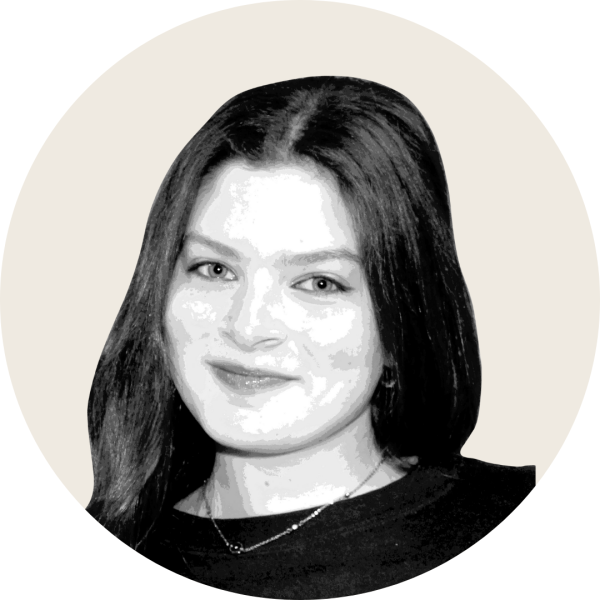Two Palestinian American authors emphasized bringing visibility to the struggles of people living in Gaza and refugees during a Georgetown University event March 31.
During the talk, poet and editor Zeina Azzam joined novelist Susan Muaddi Darraj to give a reading of selected poems and chapters focusing on their experiences as Palestinian Americans before answering audience questions. Georgetown’s Center for Contemporary Arab Studies (CCAS), which advances research into the Arab world, and the Prince Alwaleed Bin Talal Center for Muslim-Christian Understanding (ACMCU), which studies Muslim-Christian relations, co-hosted the event.
Azzam opened her reading of her poems by explaining how her childhood impacted her writing, saying her parents’ experiences as refugees informs some of the themes in her work. The establishment of the Israeli state in 1948 displaced over 700,000 Palestinian Arabs, who settled in the West Bank or other countries in the Middle East.
“My parents were Palestinian refugees in 1948 and they were there when the war started and continues to this day,” Azzam said at the event. “They settled after they fled Palestine in Syria. Many years later, I was actually born in Syria and then, when I was two, we moved to Beirut, and I had my childhood in Beirut, so we came here when I was 10 years old as immigrants.”
“I think often about the life of refugees,” Azzam added. “The refugee experience ages with them, and I think about how their perceptions of being refugees and dispossessed and displaced and how they sort of live with this pain that happened early in their lives.”
Muaddi Darraj said her own experiences and her parents’ choices have shaped her identity as a Palestinian American.

“My parents came to the States in 1967, and I think they thought they were always going back to Palestine and would be returning, and yet the years kept passing and they weren’t able to return,” Muaddi Darraj said at the event. “And then I showed up and I think they realized to their shock they were going to be raising children in this country that they were very unfamiliar with.”
“I like to say they thought they were gonna raise me in Palestine but they couldn’t and so instead they raised Palestine in me,” Muaddi Darraj added. “I grew up hearing a lot of people talk about being Palestinian American as a hyphenated identity, but for those of us who have immigrant parents or from very strong heritages, I’ve never felt cut in half in any way — I’ve always felt fully American and fully Palestinian.”
The event was the latest talk in ACMCU’s Gaza Lecture Series, which began in January 2024 and brings speakers from different disciplines to discuss the Israel-Hamas war and its impact around the world.
Azzam said her poetry brings visibility to the existence of Palestinians and the struggles those in Gaza face amid the war.
“I feel like either we don’t exist at all or we exist in opposition to others so we have to always be vigilant,” Azzam said. “For me it’s that writing poetry and prose is a way to insist on our existence. It shows who we are and where we are, that we’re here and we’re here today, and it’s also an opportunity to communicate our stories, write our stories and share our stories as Palestinians.”
Muaddi Darraj said it is important to challenge complacency surrounding the Israel-Hamas war.
“I really feel that we are starting to think that this is normal, and I just want to just say none of this is normal,” Muaddi Darraj said. “I just feel like I want to express that, and maybe that’s why we feel sometimes futile when we write, but I think maybe that’s why it’s important to just keep speaking out and keep talking.”
Muaddi Darraj added that writing can be a powerful tool for resilience and resistance to push against widely accepted narratives.
“I’ve never imagined that we would be experiencing a time like this, and it is like my worst nightmare come true, and I feel like I’ve been waking up every day for 18 months in a nightmare, but it has actually helped me to clarify what is my role as a writer in this time because you have to respond to the time that you’re in,” Muaddi Darraj said. “I feel guilty every single day for being alive and for living here in relative safety, even though safety seems like an interesting word these days.”
“I’m not sure how safe we are anymore, but I think maybe my role is to insist on the diversity of our community and to not let that be erased,” Muaddi Darraj added.
Ruth Abramovitz contributed to reporting.








